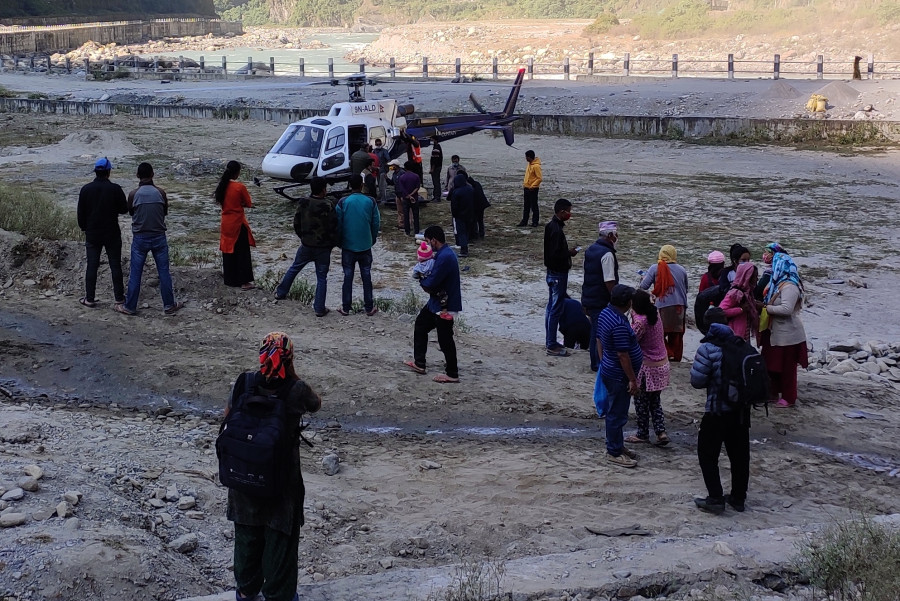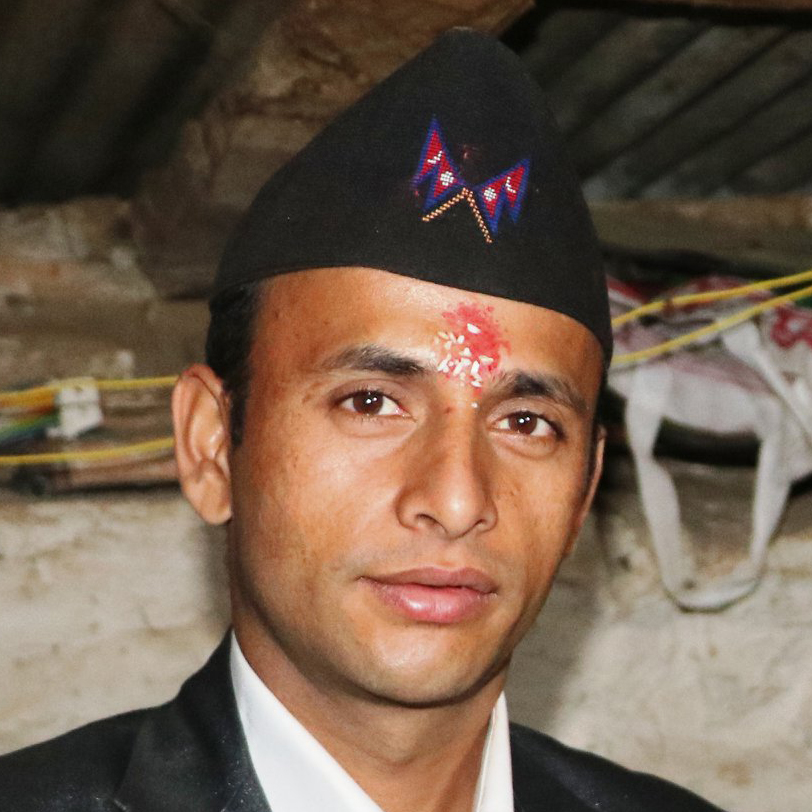Sudurpaschim Province
Sudurpaschim delivers essential supplies to Chhangru and Tinkar
The Sudurpaschim government released Rs 4.5 million amount through Ministry of Industry, Tourism, Forest and Environment to airlift the food stuff to the villages.
Manoj Badu
The Sudurpaschim government has started transporting rice and other essentials to Chhangru and Tinkar— the remote high altitude settlements in Darchula’s Byas Rural Municipality that border with India—for Dashain and Tihar festivals.
A helicopter flew to Khalanga, the district headquarters of Darchula, on Tuesday with daily commodities. The supply of rice, salt, lentil and edible oil, among other essentials, to the remote villages will continue until Wednesday, said Binod Tinkari, ward secretary of Byas Rural Municipality-1.
According to Byas Rural Municipality, the provincial executive released Rs 4.5 million amount through the Ministry of Industry, Tourism, Forest and Environment to airlift the food stuff to the remote villages. The amount was sent to the Darchula office of Cottage and Small Scale Industry Development Committee.
There are 117 households in Chhangru and 75 in Tinkar. These two remote settlements lie at Ward No. 1 of Byas Rural Municipality in Darchula district.
“The authorities have started bringing in food and other essentials. We will soon provide the essentials to the local people of Chhangru and Tinkar,” said Tinkari.
The ward office had decided to provide a relief package of 25 kgs of rice and other essentials to each household of Chhangru and Tinkar villages. But the local unit was unable to transport goods, as these settlements are not connected with the road network.
According to Tinkari, the ward office has managed rice and other essential commodities like salt, lentil, oil and soap as per the need of the local people. “We will transport 180 quintals of rice, lentil, salt and oil in the first phase. The goods will be airlifted to Chhangru first and then to Tinkar later,” he said, informing that the helicopter would continue airlifting the commodities on Wednesday as well. He is hoping to distribute the relief packages before Dashain that begins by the end of this week.
Chhangru is about a 100 kilometres north from Khalanga. The area is usually affected by food shortage since the local food production is not enough and the area is not connected to the road network.
With the onset of winter every year, the local residents of Chhangru and Tinkar descend to the district headquarters Khalanga and other places in the lower altitude with their domesticated animals to avoid the cold. And they return to their villages when spring arrives.
Chhangru lies east of the Mahakali river in Nepal with Gabryang across the river on the Indian side. The local people of Chhangru used to buy daily essentials from the Indian market nearby. But since the Nepal-India border has been sealed this year amid fear of the Covid-19, many locals have not been able to buy goods from the Indian market.
“We have to use the Indian territory to go to the district headquarters, as there is not even a foot trail on the Nepali side. The effort the government is making to provide us with essentials is good but I hope they continue to look after us even after the festival season is over,” said Mohan Singh Tinkari of Chhangru.
There used to be an old horse track connecting Chhangru with the district headquarters but it was closed off during the Maoist insurgency and fell into disrepair. The track is still disrupted, forcing Nepalis to travel through the Indian territory to reach Khalanga. A motorable road was constructed across the border in India and in 1999, India started constructing the link road. The road begins in Tawaghat in India’s Dharchula, Pithoragarh district and ends at Mansarovar in the Tibet Autonomous Region.
The residents of Chhangru and Tinkar have urged the authorities concerned to repair the track so that they could easily go to the district headquarters.
“One can hardly walk through the track on the Nepali side. It is not possible to carry goods through this track. The government should repair it at the earliest,” said Mohan Singh.




 13.12°C Kathmandu
13.12°C Kathmandu















